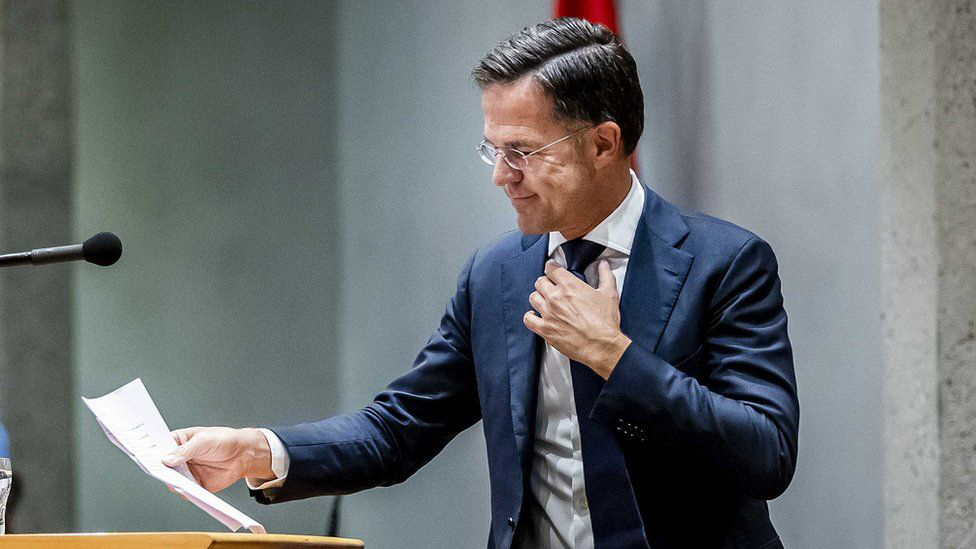AMSTERDAM, (Reuters) – Dutch Prime Minister Mark Rutte, the longest-serving leader of the Netherlands, shocked the nation yesterday by saying he would quit, a political shake-up that was unthinkable just days ago.
On Friday, Rutte announced the sudden collapse of his fourth governing coalition due to a split over migration policy, but said he was interested in keeping the top job “because I have the energy and the ideas”.
Several parties over the weekend ruled out joining a power-sharing coalition with him and Rutte told parliament on Monday he had decided not to seek re-election when the Dutch go to the polls in November.
“The past few days, there has been a lot of speculation about what motivates me. And the only answer to that is the Netherlands,” he said. “When a new cabinet takes office after the elections, I will leave politics.”
Rutte will oversee a caretaker government until a new coalition is formed, a process which in the fractured Dutch political landscape will takes months.
The interim administration cannot decide on new policies, leaving a range of important issues, from climate goals and agriculture to immigration, in limbo well into 2024.
Last August, Rutte, 56, became the longest-serving prime minister in Dutch history, a testament to his political stamina and survival skills honed over a 13-year tenure.
Rutte has led the conservative People’s Party for Freedom and Democracy (VVD) for 17 years, through countless crises and a toughening of immigration policy, spurred by a rise of right-wing parties demanding the country’s borders be closed.
“He has a lot of energy. I don’t know how he does it,” Geert Wilders, a long-term political rival and leader of the anti-Islam Freedom Party, once said of Rutte. “So I compliment him for being a very hard worker.”
Rutte has been nicknamed “Teflon Mark” for his ability to survive political scrapes, but in recent years he has faced mounting criticism over his handling of farm policy and climate change, as well as a social welfare scandal and a crisis over the Groningen gas field.
He attributed the latest political storm to “a clash of values” in the four-party coalition government over immigration. Smaller coalition parties insisted children and parents seeking asylum in the Netherlands have a right to be reunited, while his VVD sought restrictions.
An increasing number of voters had said they were tired of Rutte’s leadership, but there was no obvious alternative.
The main political rival to the VVD in an autumn election will be a farmers’ protest party that shook up the political landscape and took a majority of seats in the Dutch Senate following provincial polling in March.
Despite his ups and downs at home, Rutte has been a tireless presence on Europe’s political stage. Among current European national leaders, only Hungary’s Viktor Orban has served longer.
Rutte, who is not married, lives in the same house in The Hague that he bought with student friends decades ago and can be seen walking or cycling to cabinet meetings or state visits munching an apple.
Throughout his political career, he has continued to teach a social studies class at a high school in The Hague and had said he would like to take it up fulltime after leaving politics.
Although often tipped for high-level international positions at the EU or NATO, Rutte had called being prime minister “the best job in the world” and never hinted wanting to leave Dutch politics.
“I feel like I’m getting to the halfway point,” he quipped to journalists last year.




